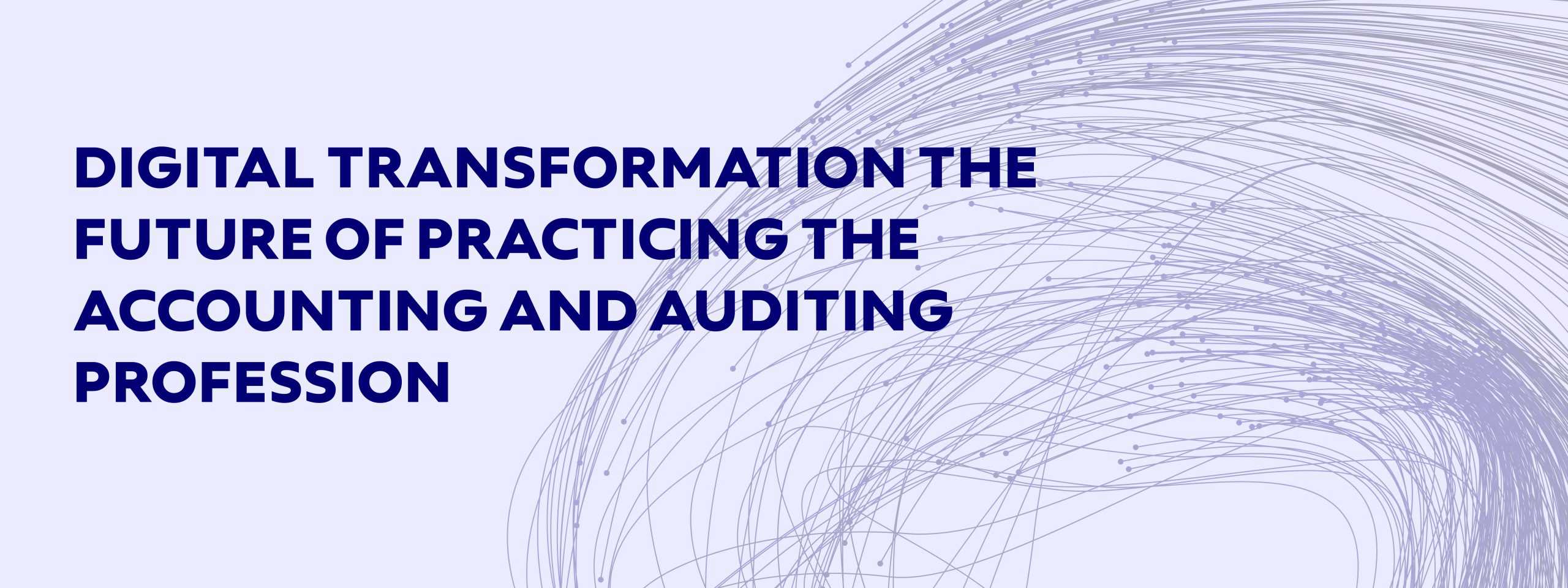Definition of digital accounting and auditing
Digital transformation is the integration of digital technology in all areas of business, which enables stakeholders to reach a radical change in how they manage and deliver value to customers and helps to save significant time and effort and even improve the work environment. It is also a cultural change that requires organizations to have the ability to consistently face the status quo and experiment and comfort with failure.
As for the importance of professional digital accounting in the world of accountants now, The use of digital accounting and auditing is done through the development and addition of technologies for accountants that they need in practicing the accounting profession and implementing financial and accounting operations, such as managing daily accounting business activities and organizing procurement accounts.
Table of Contents
Initiatives in digital transformation implemented within the organization
Separate many legacies, inefficient and functionally limited systems:
Separate many legacies, inefficient and functionally limited systems that support dynamic function mechanisms from those that support fast-moving interactions that often encounter customers.
Automate processes for finance:
Automate processes for finance including accounts payable, accounts receivable, mergers, monthly closing, and non-financial metrics (e.g., carbon footprint, ethical sourcing, etc.)
Create self-service portals for customers:
Create self-service portals for customers (e.g., provide customers with the ability to download current and historical statements and invoices, upload existing tax exemption certificates)
How AHG can help
Already a key strategic initiative, digital transformation, a catchall term for describing the implementation of new technologies,
- Invest in AI and advanced analytics:
Invest in AI and advanced analytics for real-time operational and financial analysis, automated planning and reporting.
Develop automated process automation (‘RPA’) systems:
Develop automated process automation (‘RPA’) systems to create workflows and conduct data collection and processing resulting in useful business insights.
Migrate business applications:
Migrate business applications e.g., ERP, cost) to the cloud to increase speed, accessibility, collaboration across departments, and real-time data visibility, all with the benefits of a managed environment (e.g., a cloud provider manages patches, updates, and security).
Define ERP
Enterprise resource planning (ERP) refers to it as a type of software that aims to transform manual accounting processes into digital accounting and manage and analyze daily business activities such as accounting, procurement, project management, to face and manage risks, and contribute to compliance and supply chain operations. The complete ERP suite also includes the management and analysis of an organization’s performance, and software that helps in planning, budgeting, forecasting and reporting the organization’s financial results.

ERP systems connect many business processes and enable data to flow between them. By collecting enterprise co-transaction data from multiple sources, ERP systems eliminate data redundancy and provide data integration with a single source of truth.
Today, ERP systems are essential to running thousands of businesses of all sizes and in all industries. For these companies, ERP is as indispensable as electricity that keeps the lights on.
The difference between digital accounting and IT transformation?
Digital accounting entails significant changes in the use of the organization, technology application processes and other functions of the organization’s work in accounting operations, while the transformation of information technology entails changing large parts in the services related to information technology, structure, hardware and software provided by the organization and keeping pace with the future of information technology.
Best Tax agent in Dubai 2025
Best Tax Agent in Dubai 2025 Tax is the portion of our earnings that the government collects to fund essential public services like education, healthcare,
Latest Developments on Digital Transformation and Digital Accounting in Egypt
The government has made huge efforts in carrying out the process of digital transformation and digital accounting and building an integrated digital system where the efficiency of tax administration is raised, which helps in applying a unified system for examination and tax procedures and providing services to financiers electronically without the need to go to missions or tax bodies.
These efforts were based on two frameworks related to the development of tax policies and tax administration, and the sub-axes involved, such as the development of legislation and laws related to taxes, and the automation of payment and collection procedures.
Digital transformation and digital accounting principles have been applied through electronic tax returns, the development of infrastructure and headquarters of the Tax Authority, and the development of the capabilities of the human element, which contributes to strengthening the principle of governance and good management of state resources in a way that reflected on the merit of tax revenue collection mechanisms.
The shift from basic accounting to digital accounting in the tax system required the development of a roadmap that adopts the so-called ‘Tax Administration 3.0’, in order to confirm the nature of the paradigm shift that it entails. Through the use of this term.
Tax Administration 1.0
Tax Administration 3.0
Tax Administration 1.0 can be described as largely paper-based, with many manual and isolated processes.
Tax Administration 2.0
As taxpayers and the economy as a whole increasingly digitally become digital, a host of new opportunities have arisen for the use of digital accounting and analytical tools by tax administrations, including joining other parts of government, the private sector, and internationally. This, in turn, leads to improvements in the efficiency and effectiveness of taxpayer and administration tax administration processes in many jurisdictions in what can be called Tax Administration 2.0, referred to as electronic administration.
This digital transformation – Tax Administration 3.0 – has the potential to build compliance in an increasing number of areas, to bring taxes closer to taxable events, and to reduce the burdens that may arise from using different taxing processes to those used in the taxpayer’s daily lives. As these opportunities increase, significant progress can be made on the structural constraints of current tax administration, which result in persistent tax gaps, large amounts of uncollected tax debt, and compliance burdens. This is what we will discuss during the topics of this file.
Tax Administration 3.0 is the perfect opportunity to address compliance burdens and tax evasion!
How to implement digital accounting in Tax Administration 3.0
Digital accounting and current tax management is generally carried out through a set of large-scale sequential processes. At a high level, these processes consist of identifying a taxable person or entity, reporting transactions and incomes, applying tax rules and calculating tax due, paying taxes, auditing, and enforcement processes. Increasingly, processes that were originally paper-based and partially manual have been transformed into automated or digitized format, allowing for greater data sharing within management and government, integration of third-party data, and the use of improved analytical tools. While different tax administrations are at different points in this journey, this has been a global trend of moving between modern tax administrations.

E-invoices
Electronic invoicing is a practice between companies, and has been part of electronic data interchange transactions for many years now.
E-invoicing is one of the most important steps in digital transformation and is a processing system that leverages information technology to transform the manual and paper invoicing process into a faster and more efficient electronic issuance of data messages and record keeping between commercial parties (issuer and recipient).
E-receipts
The overall objective of Egyptian electronic receipts is to enable the Egyptian Tax Authority to implement digital transformation on receipts issued by taxpayers in the country to consumers at points of sale or POS, which will enable the Egyptian Tax Authority to simplify operations for taxpayers and buyers of goods.
For example, reporting transactions to the Tax Authority immediately after the fact, exchanging information in a digital way and the possibility of developing a new vision for planning economic development and combating fraud on the Tax Authority and the Ministry of Finance.
Why AHG in Digital Accounting?
A key strategic initiative, digital transformation, an umbrella term to describe the implementation of new technologies, talent, and processes to improve business processes and satisfy customers, has already gained increasing importance during the COVID 19 pandemic.
Digital accounting represents a rethinking of how an organization uses technology, people, and processes in pursuit of new business models and revenue streams, driven by changes in customer expectations about products and services. Digital transformation is the present of sustainable business and the key to your future growth.


